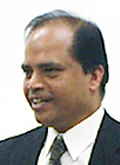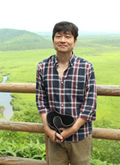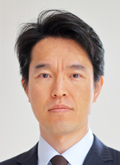Team Introduction
Team Introduction
We are conducting research activities that consider the ecosystems of wetlands and rivers from multiple human and environmental angles. The techniques used and regional areas studied are also varied. If the scientific approach examines and quantifies the water quality and environment of the river and its ecosystem from a micro perspective, and if the legal and economic approaches focus on human activities from a macro perspective of society, this approach also looks at the relationship between human society and the environment, and the personal perspectives of those marginalized in that society. For example, when we look at the process by which salmon traverse up rivers and lay eggs as a result of improved water quality, there is a sense of coexistence with human nature and the individual activities present. The social science and humanities team is also interested in the value that supports such previously mentioned activities and falls into the category of literary research. Currently, the team members are engaged in research on the Watarase Retarding Basin and the Chao Phraya River Basin, as well as Estonian Wetlands and the geographical borderlands in North America.

Literature and Environment

Environmental Economy

Environmental Economy

Society and Environment

Society and Environment

Education and Environment

Culture and Environment
The Watarase Reservoir was formerly an area that suffered from water damage and pollution from the Ashio Copper Mine, and since then various measures have been taken to improve the environment. For example, even in the suburbs of the Kanto region, salmon run upstream and lay eggs due to improved water quality, returning to the Watarase River, a tributary of the Tone River system, from autumn to December. Due to the natural purification function of the Watarase Reservoir, and "Yoshiyaki," which promotes the growth of reeds by eliminating harmful insects, by the grand Yoshihara (Yoshiara purification facility), the abundance of nature was able to be protected. This demonstrates the activity of human beings trying to conserve the ecosystem, or creating an environment where animals and plants can coexist. In February, we plan to invite Kazumi Saeki, author of the novel “Watarase” (Ito Sei Award Winner), as a guest speaker and hold events such as a symposium on the theme of the Watarase Reservoir. This novel not only has a keen perspective on the marginalized people's viewpoint and the relationship between human society and the environment, but also has a sociological viewpoint that touches on the fact that this basin once suffered from the Ashio Copper Mine incident. Although the environment of the Watarase Reservoir is improving, there are still problems with the remains of the Ashio Copper Mine that have not yet been resolved. For this reason, it is useful to share information to raise people’s consciousness of the nature of the Watarase Reservoir.
Due to the economic growth achieved in Thailand over the last 40 years, foreign-led export industries have been cultivated. As a result, a supply chain centered around Japanese companies has been built, and people's lives and their environments in the Chao Phraya basin have changed drastically. On one hand these changes are valued as modernization, but on the other hand, there are views of regret regarding the destruction of nature and the loss of surrounding land. Japan is an important partner for Thailand in trade, investment and aid. At the same time, it is easy to forget that Thailand has played an important role in Japan's economic development as well. Through joint research with the Faculty of Political Science of Chulalongkorn University, we are conducting research on the role played by Thailand's environment and resources, which have not received much attention so far, from the perspective of regional integration in Asia, including Japan-Thailand relations. What can be seen from this is that in the last 150 years it has been important to consistently conserve the environment and supply resources in addition to capital and technology, which has become important for regional integration and the construction of supply chains. Unfortunately, rules such as free trade agreements do not include details on environmental protection. We are continuing our research with such issues in mind.
Carl Middleton and Takeshi Ito. “How Transboundary Processes Connect Commons in Japan and Thailand: A Relational Analysis of Global Commodity Chains and East Asian Economic Integration,” Asia Pacific Viewpoint. 2020.